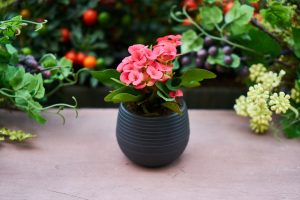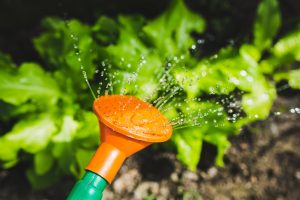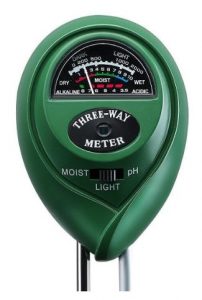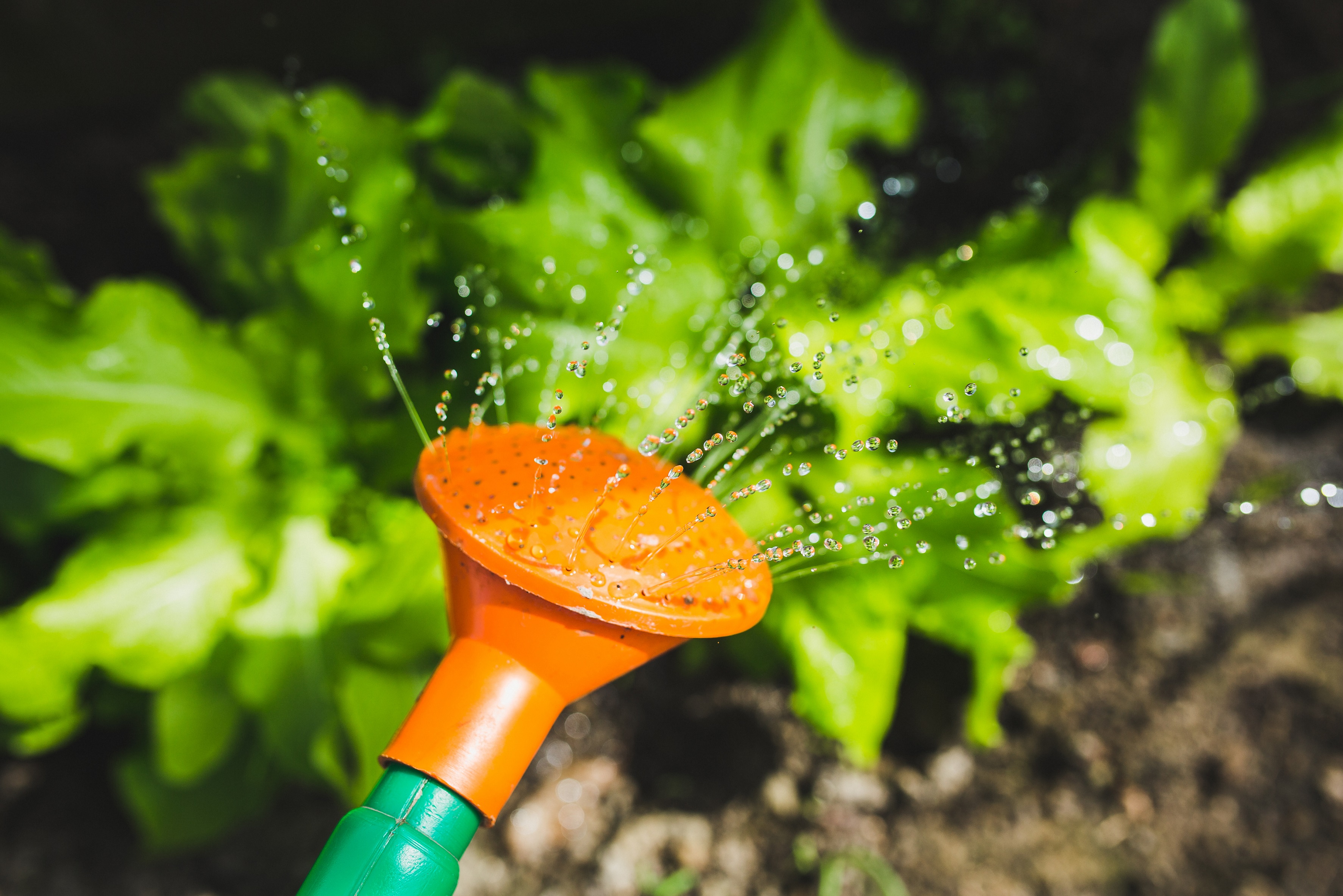With so many different types of water available, you may be left wondering which is the best plant water. Options include everything from rainwater to tap water. If you don’t mind the expense, you can even treat your greens to bottled water. Some waters will help plants thrive, while others may cause damage to the seed, root, or stem. Rainwater may seem like the most natural choice, but you need to understand the differences between your water options to know when to use which water for plants.

Tap Water
Tap water is the most readily available plant water, but how does it affect growth? That depends on what your water contains. Whether you are watering outside with a hose, or indoors from a watering can, if your water comes from a municipal source, it may not be your best option. Some of the chemical and mineral impurities such as fluoride, salts, and chlorine which are added for human benefit are not healthy for plants. Even if your water is from a well, it may contain excess minerals and heavy metals that could impact plant life. While some plants can thrive despite these additives and impurities, they are not conducive to strong growth.

Regardless of the potential impurities of tap water, it is often the most economical option for watering plants. There are certain steps you can take to reduce the harm tap water can cause. Let the water sit in an open container for at least 24 hours prior to using it so harmful chemicals such as chlorine can evaporate. This will also allow the water to reach room temperature which will prevent shocking the plants with water that is too hot or too cold.
Rain Water
If you have an outdoor garden, rainwater is an acceptable choice for watering plants. There are a variety of options for collecting rainwater, from barrels to buckets. Some of the specialized rain barrels allow you to connect a hose to make outdoor watering even easier. Using buckets is an effective way to collect rainwater to refresh your indoor plants.
Rainwater is beneficial for plants because it is slightly acidic. This helps to keep soil pH at an optimal level for healthy plants between 5.5 and 6.5. It typically contains fewer minerals, making it softer than tap water. As raindrops travel, they absorb particles from the atmosphere. These particles offer extra nutrients for the soil that would not be found in tap water.
Distilled Water
Distilled water for plants is sometimes recommended due to its purity. The process of distillation removes many of the harmful chemicals and other impurities that can stunt plant growth. If you have hard water or a water softener, you may want to consider investing in a home distiller. Hard water contains harmful minerals that build up in the soil over time and do not get washed away even if the water source is changed. Soft water contains salts that damage plants. A home distiller is a cost-effective way to filter out these impurities, creating better water for plants.
Filtered Water
Some gardeners prefer filtered plant water. A water filtration system works to remove impurities that could be harmful both to humans and plants. This purified water is much easier for plants to absorb than water filled with impurities and contaminants. While any type of filtration system is better than water straight from the tap, the Water Quality Association recommends that reverse osmosis is the best type of filtration for watering house plants.
Softened Water
People who have hard water often turn to water softeners to prevent mineral buildup. Water softeners work by adding sodium carbonate or potassium to the water. Unfortunately, this excess sodium concentration is not good for plants. Plants do not tolerate sodium, especially at the levels present in softened water. The high levels of salt can affect the balance of plants, causing them to take in less water than they need to survive. Eventually, plants that have been watered with soft water will die of thirst. Additionally, the excess salt will remain in the soil creating an inhospitable environment for future plants.
Additives
While some of the plant water choices are better than others, it seems that all of them have nutritional gaps. There are a number of additives available to improve the nutrient content of your water. While many people suggest simply adding sugar or salt to water for faster growth, these will actually hinder growth and could cause root rot. The best additives to use are those that are specially formulated to stimulate growth in plants.
Testing
If you still aren’t sure which is the best water for plants, testing your water might help you decide. TestAssured offers testing kits that help you evaluate the contents of your water.

They also have a three-in-one soil meter that will show you how your water choice is affecting the soil, which is another critical element in healthy plant growth. Testing different kinds of water and soil conditions will help you understand what it takes to grow a lush, productive garden.

